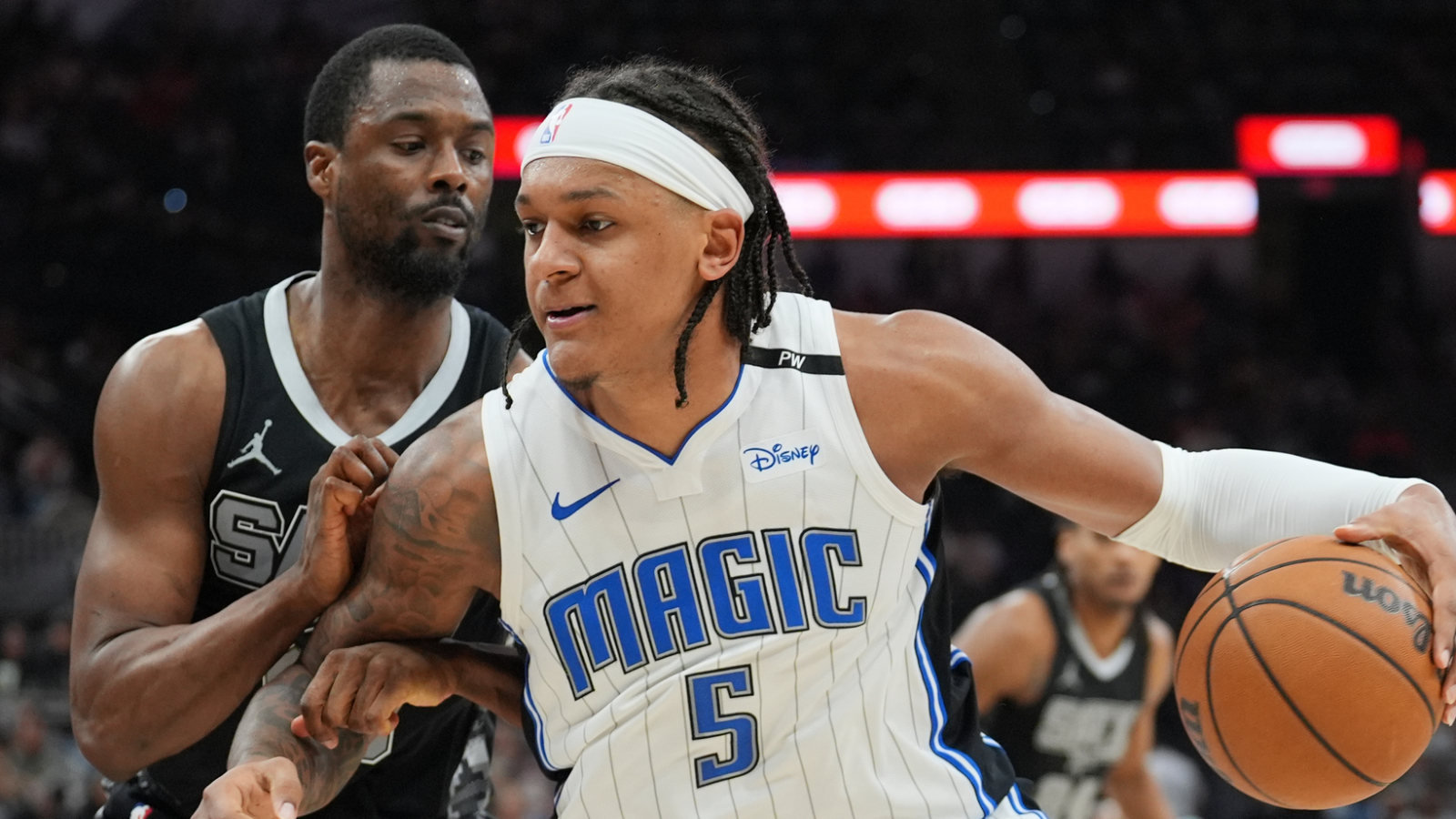
This was not the season that the Orlando Magic had envisioned, their stellar defense – 2nd in the NBA at a 109.6 defensive rating per Basketball Reference – offset by a putrid 27th ranked offense.
Star Paolo Banchero has performed admirably but a 34-game injury absence short circuited the first half of Orlando’s season. Running mate Franz Wagner missed 22 games while defensive bellwether Jalen Suggs has only suited up 35 times and won’t appear in the postseason. The trio made a grand total of six appearances together all season.
That led to a 41-win season and a playoff matchup with the reigning champion Boston Celtics in round one. The 61-win Celtics start as heavy favorites in this series but can the Magic, who have won 10 of their last 13 games, make the Celtics play in the mud?
Famously, Boston relies on its phalanx of three-point marksmen, setting the NBA record in made threes with a staggering 17.8 makes per game this season on a ridiculous 48.2 attempts. A stat supporting their three-point reliance: in their matchup with Oklahoma City earlier this season, 22 of Boston’s 24 first quarter attempts came from beyond the arc. Of Boston’s nine-man rotation, all bar Luke Kornet – the player with the least average minutes – are an outside threat.
Orlando’s defense is specifically designed to take away two things: fast break points and threes. Given Boston rank 29th in pace (only ahead of Orlando) the former isn’t so much of a factor; the latter, though, could make or break the series.
Orlando’s sheer size covers incredible amounts of space, all three frontcourt starters (Banchero, Wagner and Wendell Carter) measuring 6’10” and Kentavious Caldwell-Pope a long 6’5”. Veteran Cory Joseph, starting in Suggs stead, is a clever positional defender.
Off the bench the Magic can roll out muscle in Goga Bitadze, length in Anthony Black, Tristan Da Silva and Caleb Houstan and then thrown one of the best defenders in the world in Jonathan Isaac at you.
That size and switchability means the Magic are rarely put into defensive rotation, the key to opening up the catch-and-shoot threes on which Boston subsists.
Boston’s go-to counter for when a defense stays home on their shooters is to move into post ups, especially through Jayson Tatum and Kristaps Porzingis. Orlando is unlikely to be greatly concerned about those, given its size advantages across the board. Porzingis, at 7’3”, can shoot over any defender, but simply doesn’t have the strength to back down Orlando’s bulky big men – his post ups will come further out than is ideal.
In their fist meeting this season in December, Orlando held Boston to just eight made treys in a 108-104 win, though it’s worth noting that none of Tatum, Wagner or Banchero appeared in that contest.
In their next meeting, a Magic side missing Wagner and Suggs were beaten by 26 points, crushed under the weight of 17 made threes.
That variance is what buoys the Celtics. When they’re making their threes, they are nearly unbeatable. If you can take that away, the Celtics can look vulnerable. Given the Magic are specifically designed to take away Boston’s lifeblood, and physically constructed to meet their counterpunch, there is a definite chance that Orlando can frustrate Boston’s high-octane attack.
Given the Magic’s stark inability to put the ball in the basket, making this series a rock fight (and brining a tear to the eye of 90’s hoops apologists) is Orlando’s only chance of making this a series.